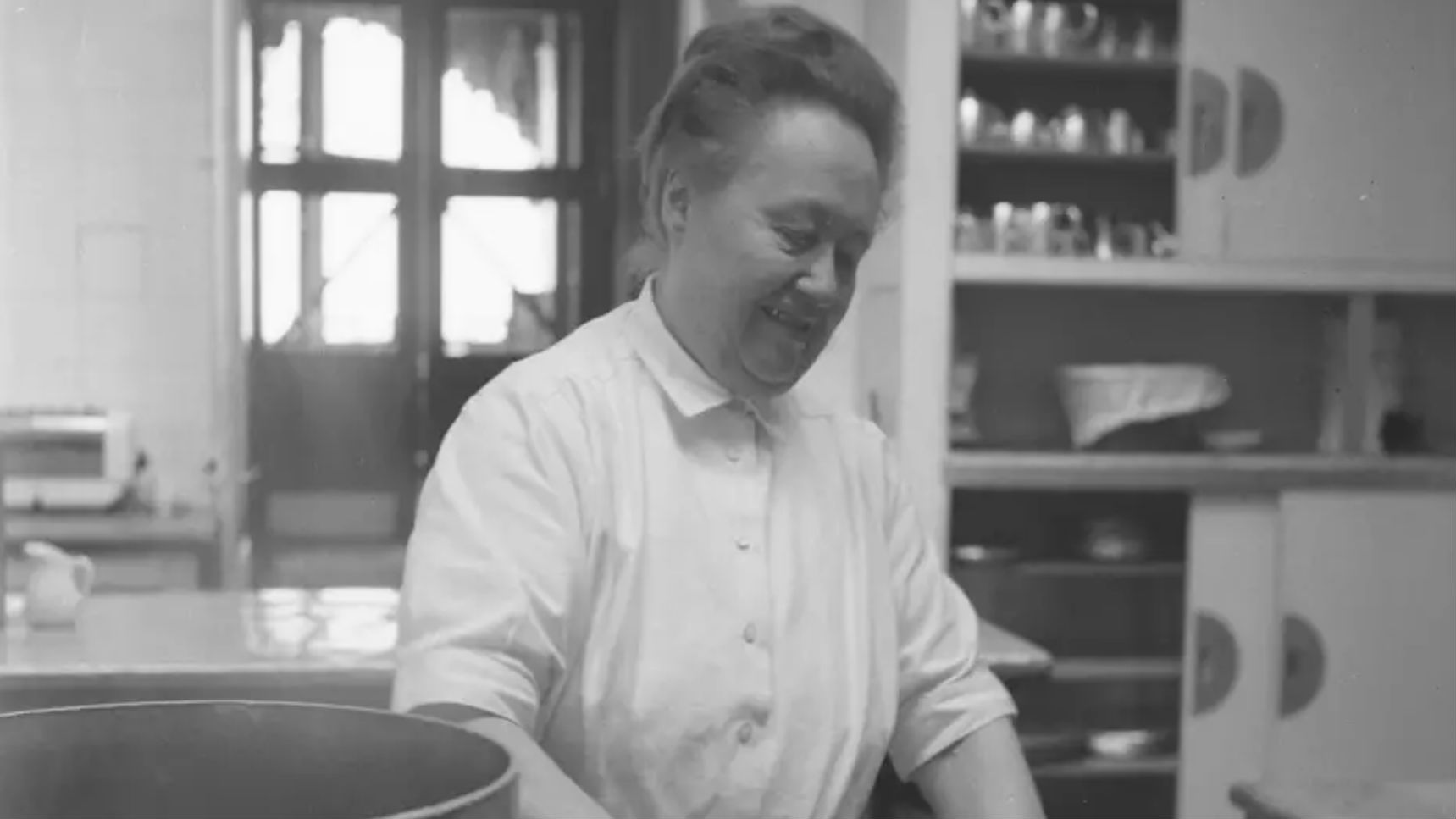Who was Eugenie Brazier?
First chef to attain three Michelin stars at two restaurants was born 123 years ago

A free daily email with the biggest news stories of the day – and the best features from TheWeek.com
You are now subscribed
Your newsletter sign-up was successful
The 123rd birthday of Eugenie Brazier is being marked with a Google Doodle today in tribute to her achievements as the first woman to earn three Michelin stars.
Brazier revolutionised the culinary world, yet few people today know about her extraordinary career. So how did she become the so-called mother of French cooking?
Born in 1895 on a farm in La Trancliere, in eastern France, Brazier was inspired to become a cook by her mother, who died when she was just ten years old. The grieving child was then sent to work at another farm, where she developed her culinary skills.
The Week
Escape your echo chamber. Get the facts behind the news, plus analysis from multiple perspectives.

Sign up for The Week's Free Newsletters
From our morning news briefing to a weekly Good News Newsletter, get the best of The Week delivered directly to your inbox.
From our morning news briefing to a weekly Good News Newsletter, get the best of The Week delivered directly to your inbox.
At the age of 19, Brazier had a child out of wedlock, prompting her father to kick her out. She went to Lyon, where she became a nanny during the First World War. Brazier also took over as the family cook and was soon working at La Mere Fillioux, a high-class establishment with a female-only kitchen.
In 1921, at the age of 26, Brazier bought a small grocery store and turned it into her first restaurant, La Mere Brazier.
“On opening day, she served lunch and dinner, crayfish with mayonnaise and pigeon with peas. It was a simple and elegant space; the main room had large bay windows overlooking the street and earthenware tile on the walls in cream, grey, and blue,” according to food blog Eater.
In 1933, she became the first woman to earn three Michelin stars, a feat she then repeated after opening a second restaurant, Col de la Luere, in the Alpine foothills. Her Michelin record remained unmatched by any chef until 1998, when French-born chef Alain Ducasse was awarded his second set of three stars.
A free daily email with the biggest news stories of the day – and the best features from TheWeek.com
“So popular was her cooking that Charles de Gaulle and Valery Giscard d’Estaing counted themselves as fans, while film stars like Marlene Dietrich made treks to sample her langouste belle aurore, a whole sweet lobster drenched in brandy and cream,” says the Daily Beast.
At the height of her fame, Brazier could have “easily have uprooted for ritzier digs in Paris or abroad”, says the site, but she “remained loyal to the Rhone-Alpes region where she first flourished and whose rhythms and rituals circumscribed her long life”.
After living through both World Wars, Brazier died on 2 March 1977, in Sainte-Foy-les-Lyon, a suburb of Lyon, leaving a cookbook that she was writing unfinished.
Her family later saw the book through to completion and it was finally published in 2009, under the title Les secrets de la Mere Brazier. The English version, La Mere Brazier: The Mother of Modern French Cooking, was published in 2014 and is equal parts history, recipes, photos, and tributes.
-
 Local elections 2026: where are they and who is expected to win?
Local elections 2026: where are they and who is expected to win?The Explainer Labour is braced for heavy losses and U-turn on postponing some council elections hasn’t helped the party’s prospects
-
 6 of the world’s most accessible destinations
6 of the world’s most accessible destinationsThe Week Recommends Experience all of Berlin, Singapore and Sydney
-
 How the FCC’s ‘equal time’ rule works
How the FCC’s ‘equal time’ rule worksIn the Spotlight The law is at the heart of the Colbert-CBS conflict
-
 Greenland’s capital becomes ground zero for the country’s diplomatic straits
Greenland’s capital becomes ground zero for the country’s diplomatic straitsIN THE SPOTLIGHT A flurry of new consular activity in Nuuk shows how important Greenland has become to Europeans’ anxiety about American imperialism
-
 Epstein files topple law CEO, roil UK government
Epstein files topple law CEO, roil UK governmentSpeed Read Peter Mandelson, Britain’s former ambassador to the US, is caught up in the scandal
-
 Iran and US prepare to meet after skirmishes
Iran and US prepare to meet after skirmishesSpeed Read The incident comes amid heightened tensions in the Middle East
-
 Israel retrieves final hostage’s body from Gaza
Israel retrieves final hostage’s body from GazaSpeed Read The 24-year-old police officer was killed during the initial Hamas attack
-
 China’s Xi targets top general in growing purge
China’s Xi targets top general in growing purgeSpeed Read Zhang Youxia is being investigated over ‘grave violations’ of the law
-
 Panama and Canada are negotiating over a crucial copper mine
Panama and Canada are negotiating over a crucial copper mineIn the Spotlight Panama is set to make a final decision on the mine this summer
-
 Why Greenland’s natural resources are nearly impossible to mine
Why Greenland’s natural resources are nearly impossible to mineThe Explainer The country’s natural landscape makes the task extremely difficult
-
 Iran cuts internet as protests escalate
Iran cuts internet as protests escalateSpeed Reada Government buildings across the country have been set on fire